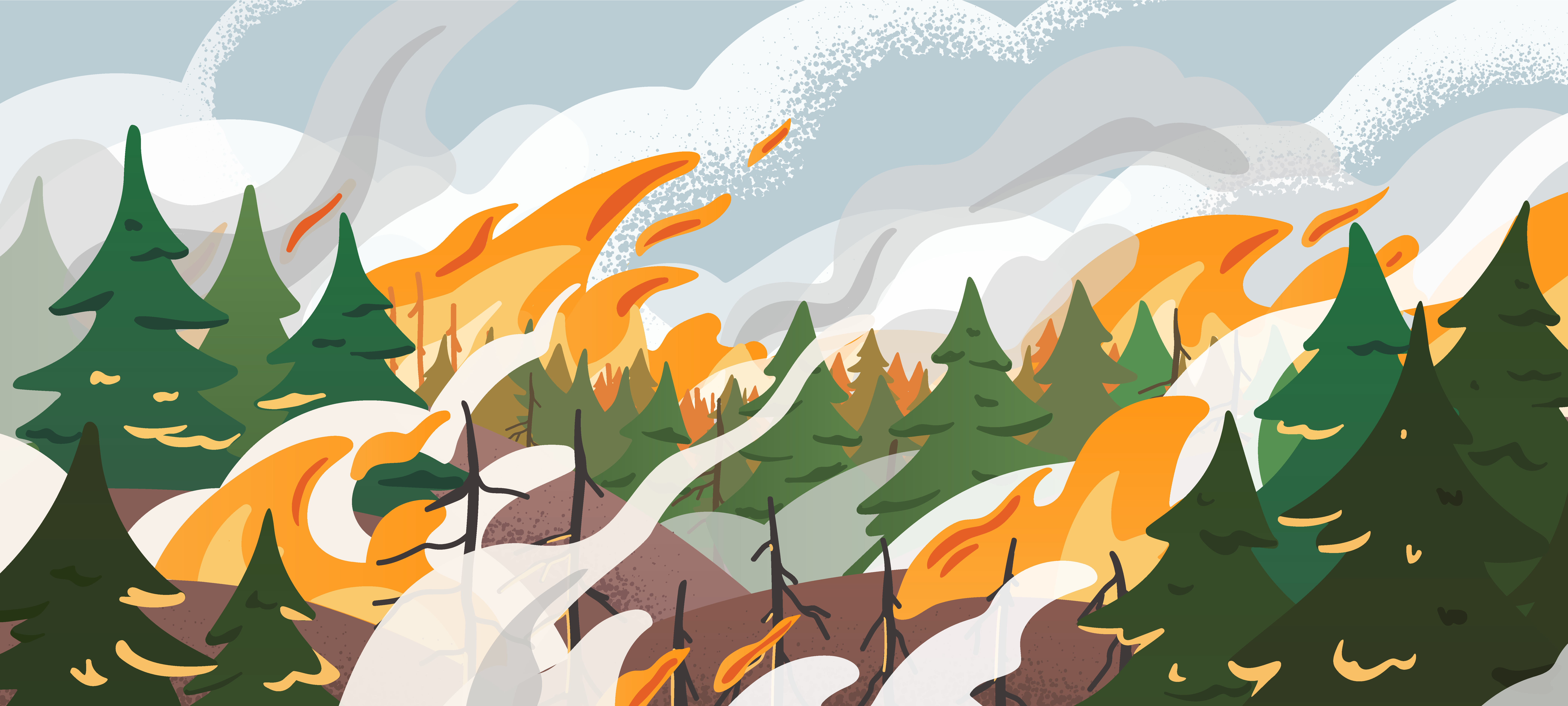A town of 1000 called Dudleyville was asked to evacuate Thursday due to a wildfire called Margo. The Margo Fire broke out due to dry conditions accompanied by wind gusts of up to 35 miles per hour. Located 100 miles southeast of Phoenix, the wildfire closed a portion of Arizona highway 77. If you are in the area please wait until authorities say it is safe to reenter the community. Please be advised, inhaling wildfire smoke can be dangerous, it is best to avoid the area while visible smoke is still in the air. If you do return prior to the smoke dissipating be sure to wear an N95 respirator.
Why is Wildfire Smoke Dangerous?
Wildfire smoke contains gases and fine particles from the burning trees and other materials that are burning. The smoke can irritate your eyes, respiratory system and even worsen any chronic or heart diseases. Soot can enter your lungs without you even knowing causing major health problems.
Who is at the greatest risk?
- Individuals with lung or heart disease, or any respiratory issues.
- Older adults are likely to be affected to smoke due to their increased risk of lung and heart disease.
- Children are at risk. Due to their developing airways, children intake more air than adults.
Take these steps to decrease your risk during a wildfire:
- Check the local air quality reports. Listen to the news for any health warnings and pay attention to any public health messages about what safety measures you need to take.
- Consult local visibility guides. Some areas have tools that measure the number of particles in the air, while other communities can help determine by how far they are able to see.
- Keep indoor air clean. If you are staying indoors, keep all doors and windows closed. If you run your air conditioner be sure the fresh air intake is closed to prevent outside air from getting in.
- Avoid indoor activities that increase pollution. This includes burning candles, fireplaces, or woodstoves.
- Prevent wildfires from starting. Make sure you are safely preparing, maintaining, and extinguishing campfires. Check with the local fire department to ensure the weather is safe for a campfire.
- Follow the advice of a healthcare provider on medicines or how to properly manage your respiratory distress. Contact your doctor if symptoms worsen, and consider evacuating the area if you are having trouble breathing.
- Do not rely on dust masks for protection. These masks will not protect your lungs from the pollution found in wildfire smoke. They are designed to trap large particles, such as sawdust. Use only an N95 Respirator.
- Evacuate from the path of wildfires. Follow the instructions from the local officials on when and where to evacuate. Be prepared for heavy traffic and follow the designated evacuation route. Have a backup route planned before leaving, as some roads may be blocked or closed.
- Protect yourself when cleaning up after a fire. If you are exposed to ash and other particles from the fire, you may irritate your eyes, nose, or skin causing coughing and other health issues.
Remember, when a wildfire burns the smoke could reach your community even if you are not in any direct danger of flames. If your business, property, or public entity building experiences smoke damage, do not hesitate to call Restoration Management Company for help.
ABOUT RESTORATION MANAGEMENT COMPANY
Since 1985, Restoration Management Company has provided 24-hour restoration service for customers when they experience a catastrophe in their home or workplace. With their headquarters in Hayward, California, RMC has 10 regional locations in Northern and Southern California, as well as locations in Seattle, Washington; Dallas-Fort Worth, Texas; Phoenix, Arizona; and the Denver, Colorado metro areas. When emergency services are required RMC delivers high-quality and rapid water damage restoration as well as smoke, fire, environmental and catastrophic restoration services. We stand ready with our highly-trained, experienced, and customer-focused restoration technicians.
Restoration Management Company www.RMC.com
1.800.400.5058
